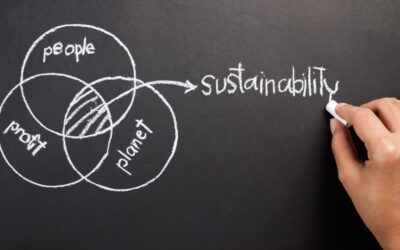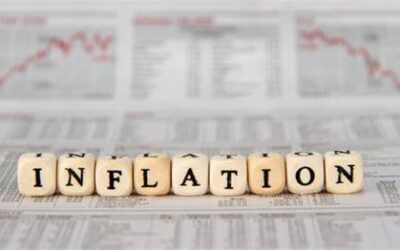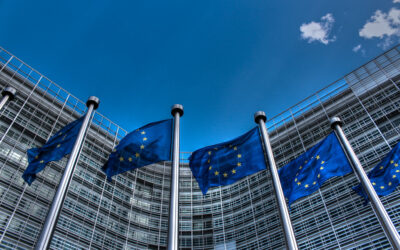On March 16, 2023, the Net-Zero Industry Act (NZIA) was introduced by the European Commission. This proposal aims to enhance the production capacity of net-zero technologies in Europe and address the challenges that hinder the scaling up of manufacturing capacity. By implementing the measures outlined in the regulation, the EU’s energy resilience and competitiveness in the net-zero technology sector are expected to improve. Through this proposal, Europe demonstrates its dedication to taking a leading role in the transition to net-zero technology and contributing to the achievement of the “Fit-for-55” and “REPowerEU” goals.
The Net-Zero Industry Act is a regulation proposed as part of the Green Deal Industrial Plan’s effort to provide a simplified and predictable regulatory environment for investments in the production capacity of key products that can help the EU achieve its climate neutrality goals. It aims to increase the competitiveness and resilience of the EU’s net-zero technology industrial base, which is a crucial component of a sustainable clean energy system. The Act focuses on accelerating the development and production of net-zero technologies and reducing strategic dependencies that could hinder access to critical technologies and components for the green transition. The regulation covers products, components, and equipment necessary for manufacturing net-zero technologies and distinguishes between net-zero and strategic net-zero technologies. The latter receive additional benefits and are selected based on three criteria: technology readiness level, contribution to decarbonization and competitiveness, and energy system resilience. The list of strategic net-zero technologies includes solar, renewable, battery and storage, heat pumps, electrolysers and fuel cells, sustainable biogas/biomethane, carbon capture and storage, and grid technologies. The proposal sets a benchmark for the manufacturing capacity of strategic net-zero technologies to meet at least 40% of the EU’s annual deployment needs by 2030 and a target of 50 million tonnes of annual CO2 storage capacity by the same year.
The “Fit-for-55” and “REPowerEU” goals are initiatives outlined by the European Union as part of its broader efforts to achieve climate neutrality by 2050. The “Fit-for-55” package, announced in July 2021, includes a set of legislative proposals aimed at reducing the EU’s greenhouse gas emissions by at least 55% by 2030, compared to 1990 levels. The package includes measures to strengthen the EU’s Emissions Trading System (ETS), increase the share of renewable energy in the EU’s energy mix, and promote energy efficiency, among others.
The “REPowerEU” Initiative is a component of the “Fit-for-55” package, which aims to increase the share of renewable energy in the EU’s final energy consumption to 40% by 2030. The initiative includes measures to support the development and deployment of renewable energy technologies, such as wind, solar, and hydropower, as well as the integration of renewable energy into the EU’s energy system.
In summary, the “Fit-for-55” and “REPowerEU” goals are part of the European Union’s broader climate policy agenda, which seeks to significantly reduce greenhouse gas emissions and increase the share of renewable energy in the EU’s energy mix.
In January 2023, President von der Leyen announced the European Green Deal Industrial Plan, which aims to maintain the EU’s leadership in achieving climate neutrality through investments in clean technology. The plan has four pillars, which include a predictable and simplified regulatory environment, faster access to funding, skills development, and open trade for resilient supply chains. To complement this plan, the Commission proposed the Critical Raw Materials Act to ensure adequate access to rare earths and the reform of the electricity market design to make renewable energy more accessible to consumers.
Von der Leyen stated at the World Economic Forum in Davos that the goal is to invest in strategic projects throughout the supply chain, with a particular focus on simplifying and expediting permitting for new clean technology production sites. This is a response to the Inflation Reduction Act, a green subsidy package worth $369 billion, which the EU worries will prompt industries to relocate overseas. In her speech, von der Leyen expressed concern over the U.S.’s actions. During a keynote speech, von der Leyen acknowledged that some aspects of the Inflation Reduction Act’s design have raised concerns regarding the specific incentives offered to companies.
The Inflation Reduction Act of 2022 is a new federal spending law in the US that aims to reduce carbon emissions, improve healthcare costs, and fund the IRS. It focuses on encouraging domestic manufacturing capacity and promoting clean technologies like carbon capture and storage and clean hydrogen. The law also includes provisions for environmental justice and is estimated to reduce budget deficits by $237 billion over the next decade. It is one of three recent pieces of legislation aimed at improving US economic competitiveness and innovation.
According to Maria João Duarte, who is EMEA Representative to EU institutions at Mitsubishi Heavy Industries, the Inflation Reduction Act (IRA) is America’s response to the urgent need for effective policy action to combat the climate crisis. This legislation includes targeted support for carbon dioxide capture, utilization and storage (CCUS), heat pumps, green hydrogen, electric vehicles (EVs), and energy storage, among other measures, and allocates almost $370 billion in incentives to reduce carbon emissions.
The impact of the IRA has been felt worldwide, prompting reactions from non-US companies, nations, and blocs, not all of which have been positive. However, Maria João Duarte argues that the IRA has had a positive effect on the energy industry, as it aligns with the global push for green investment and the goal of reaching net zero. Moreover, the IRA is pragmatic, as it provides comprehensive federal funding for clean energy, covering all the solutions necessary to achieve net zero by 2030, and manufacturers can work with the tools it offers them.
Nonetheless, the IRA is also disruptive, raising concerns that it could pull investment away from the EU and prompting policymakers to re-evaluate their decarbonization initiatives to level the playing field and coordinate global efforts to lower emissions. However, there are positive signals, as the US is working with France and Germany to communicate subsidy details transparently, and the EU’s Green Deal Industrial Plan details better access to finance and more global cooperation. Ultimately, the goal of the IRA and similar efforts is to accelerate decarbonization, and investment clarity and global coordination are improving every day to achieve this goal together.
Sources: The Net-Zero Industry Act (europa.eu)
Von der Leyen announces Net-Zero Industry Act to compete with US subsidy spree – POLITICO
What’s in the Inflation Reduction Act (IRA) of 2022 | McKinsey
The ripple effects of the Inflation Reduction Act – EURACTIV.com
Photo by Chris LeBoutillier: https://www.pexels.com/photo/black-ship-on-body-of-water-screenshot-929382/



